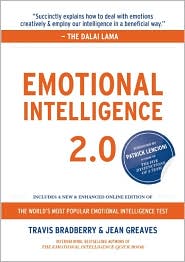 In Meta-Halakha: Logic, Intuition, and the Unfolding of Jewish Law, Moshe Koppel tackles many important theological questions that can come up when talking about Halakha. Unlike other books such as the Oral Law, Koppel uses unconventional methods to decipher the relevant Talmudic texts. He uses ideas from mathematics, logic and computer science to systematically create an explanation for the Halakhik system we know today. While I specifically loved this as a math major, this book was not only meant for me. Koppel always explains the ideas he is going to use before he uses them in terms of Halakha, making sure to never leave the reader in the dark.
In Meta-Halakha: Logic, Intuition, and the Unfolding of Jewish Law, Moshe Koppel tackles many important theological questions that can come up when talking about Halakha. Unlike other books such as the Oral Law, Koppel uses unconventional methods to decipher the relevant Talmudic texts. He uses ideas from mathematics, logic and computer science to systematically create an explanation for the Halakhik system we know today. While I specifically loved this as a math major, this book was not only meant for me. Koppel always explains the ideas he is going to use before he uses them in terms of Halakha, making sure to never leave the reader in the dark. The biggest issue Koppel deals with is the question of to what extent is the Torah, as we know it, from Mount Sinai. We are supposed to believe that the entire Torah was given to Moses, but at the same time we want to also allow some leeway to be applied in changing times. This creates an inherent contradiction. Another question Koppel deals with is of the existence of disputes in Halakha. While he certainly relates this to the overall argument between Rabbi Elazar and Rabbi Yehoshua on the validity of multiple opinions in law, Koppel asks if there is one platonic version of Halakha, or is dispute an integral part of the Halakhik system. Specifically because the book is a formulation of an entire theory, I would not really be able to capture Koppel’s Meta-Halakhik theory in a couple sentences, so please do not replace reading the book for this short review.
The main idea Koppel brings out is that Halakha and the Jewish people create an autonomous system, in which intuition about what the Halakha is in continuously being formalized. When Moses got the Torah at Sinai he did indeed get the entire Torah. However, Moses knew the Torah in a very different way than we do, he knew it intuitively. Because intuition is a very hard thing to pass on, eventually we started to formalize the Halakha and it was here when debates began. Only when you put an actual amount on the amount of Matzo one must eat on Passover, does your opinion rule out other amounts. This can be unhealthy if one opinion rules over without the ability for intuitive thought. It is for this reason the Beit Hillel was chosen over Beit Shammai (they always said the other opinion) and Rabbi Meir was rejected (his opinions were so creative that others could not argue with him).
There were a couple reasons why I thought Meta-Halakha was a profoundly good read. Koppel tackles head on important issues I feel that Jews think about a lot. He does this in a creative fashion and creates a real model that fits the entirety of the Halakhik system. It was a clearly better answer than those that I heard before, and after talking to a couple people since reading this book, it seems that it is a topic that is primarily forgotten about in Yeshivas. Meta-Halakha gives deep answers to deep questions, changing the way I thinking about Halakha and has given me a greater appreciation for the system that it is.
Next Week: Start-Up Nation


